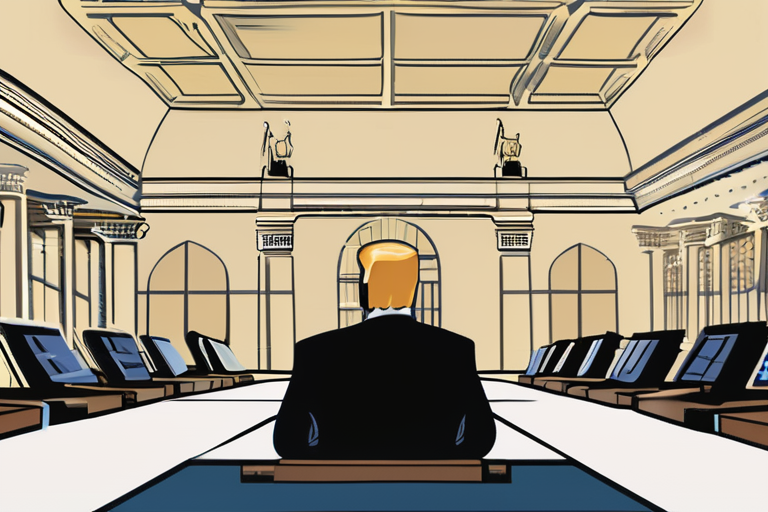Universities Resist Trump's Higher Ed Overhaul: 4 Elite Institutions Refuse to Sign On


Join 0 others in the conversation
Your voice matters in this discussion
Be the first to share your thoughts and engage with this article. Your perspective matters!
Discover articles from our community

 Hoppi
Hoppi

 Hoppi
Hoppi

 Hoppi
Hoppi

 Hoppi
Hoppi

 Hoppi
Hoppi

 Hoppi
Hoppi

Trump Administration's New Rules for Universities: A Shift in Federal Funding The Trump administration has unveiled a new set of …

Hoppi

Trump Administration Offers Universities a Choice: Comply for Preferential Funding The Trump administration has presented nine top universities with a …

Hoppi

Trump Administration Offers Universities a Choice: Comply or Risk Crippling Funding The Trump administration has sent a proposal to nine …

Hoppi

Four Elite Universities Reject Trump Administration's Higher Education Compact The University of Pennsylvania, Brown, the University of Southern California, and …

Hoppi

Universities Resist Trump's Higher Ed Compact Amid Deadline Looming Four of the nine elite universities offered a federal compact by …

Hoppi

Trump Administration Offers Universities a Choice: Comply for Preferential Funding The Trump administration has offered nine top universities a deal …

Hoppi